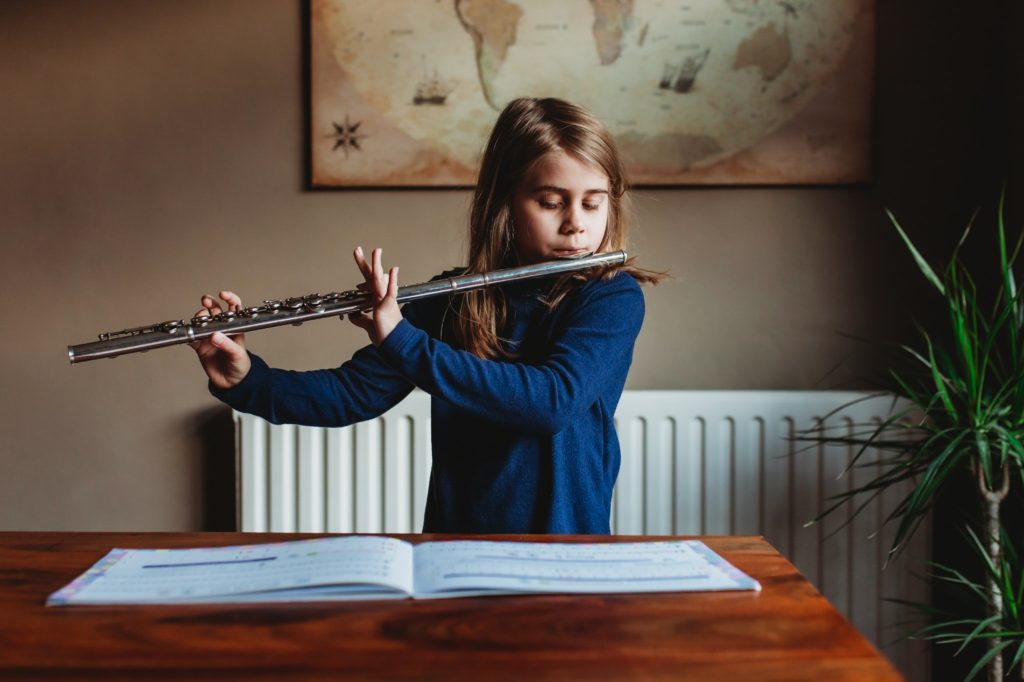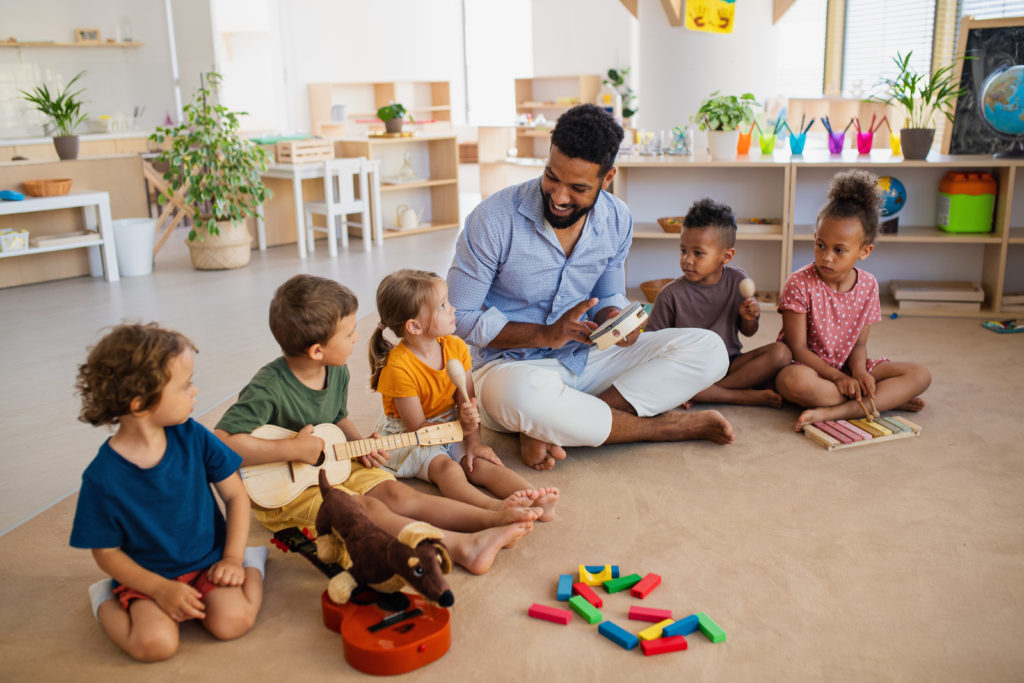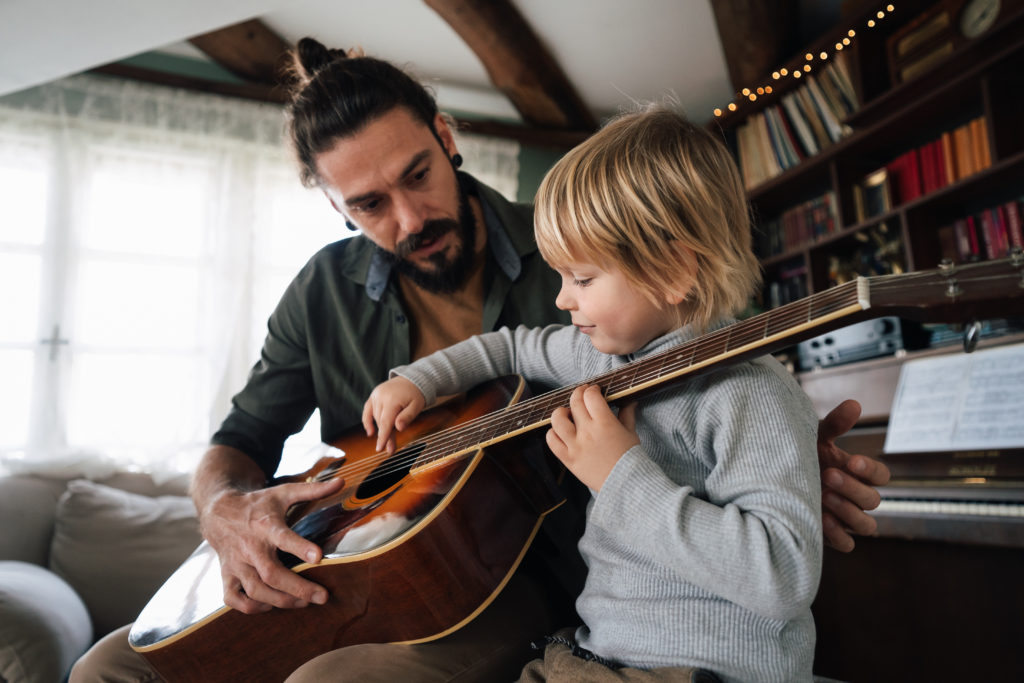Music and voice lessons are beneficial in children’s growth, it teaches children language skills, increases the IQ, social, cognitive, conceptual, patience and regular practice will bring out self – discipline. Music also helps children grow as people, teaching them creativity and confidence.
The University of Southern California’s Brain and Creativity Institute scientists discovered a link between music in early childhood and accelerated brain development during the year 2016. The researchers found that children who are exposed to music early on are more likely to have better reading and communication skills and language learning skills. Music helps children to keep their Mental and emotional health in check.
If you are parents who are worried about the Math subject, here is one way to help kids to learn Math. Yes, the National Association of Music Merchants Foundations ( NAMM fOUNDATION) has found that children who play instruments are more likely to be better at math, they tend to earn higher grades!!
Benefits of Music for Children
The benefits of music in early child development are multifold. By encouraging learning through music, parents can help children can:
1. IMPROVES MEMORY
Playing music requires memory at both the psychological and physical levels. Students need to remember what notes to play and when. The coordination necessary to pull this off is also important as each move of a finger leads to the creation of a specific sound.
We live in a society where children and adults alike have grown alike not to remember. The distractions of technology and more multi-tasking do not help to make this any better. Music helps children to slow down, turn off the devices, and focus in a fun way.
To do this, students manage tasks such as reading notes, listening for sounds, and memorizing lyrics which all require exercising their memory skills and stretching them to infinite limits.
2. Ultimate Brain Workout
As we know Music is one of the major parts of a child’s sensory development, like colors, texture and taste from early childhood. Exposing children to different types of music creates more pathways between the cells in their brains.
Music can boost one’s overall IQ. Studies have shown that learning to play an instrument can have a lasting effect on children’s life like studies showed, children who took piano lessons for one year, coupled with consistent practice showed three points higher IQ. Unlike brain games, music taps the emotional and the artistic aspect of human behavior and makes long lasting changes to the brain.
Music is a complete brain workout. Example, If kid learns and plays a Piano instrument. Initially struggling with left and right hand coordination, one had to use both hands in perfect coordination to play rhythms independent from each other at perfect time.

Piano is one of the few instruments which requires use of all 10 fingers independently. Children have to use their feet to play piano pedals. It is not only Piano, playing any instrument stimulates different regions of the child’s brain simultaneously which otherwise wouldn’t be open up with normal day to day activity.
3. Build self-confidence and self-esteem
Music is one of the natural self-esteem boosters. By engaging in musical activities – singing, dancing, drumming , children learn to use their own voices and take up lots of physical space.
As a musician, he will be performing in front of strangers, family and friends; thereby learning to be in the public eye and on stage and developing courage to face the real world. The appreciation received by the child for his performances will further boost his confidence and make him aim for even higher achievements.(but on the other hand it is totally fine if children show interest in music but don’t want to participate in events things will change slowly).
Children like to shine when they find at least one thing they are good at and can feel confident.
When the child starts seeing the fruit of his hard work, he realizes that he is the captain of his life’s ship and they start to work on themself without parents help.
4. Teaches Discipline, improves memory and Concentration
A child cannot learn even the simplest of a musical piece without concentration, focus and the discipline to practice everyday. By practicing every day, the pieces get reinforced thereby improving memory. All this done every single day becomes a habit which is also seen in other aspects of the child’s life.
Parents mostly go around sports to teach children discipline, but not every child has the wish to play. Children facing disabilities that result in limited mobility might also miss out on this opportunity. Music is one of the ways to fill some of these learning gaps left behind !!

5. Offers Creative Expression
Children when exposed to music at a young age to be creatively expressive. Music can work as a huge stress buster for children. Children tend to calm down once engrossed in playing an instrument.
Being able to participate in music classes offers more opportunities for self-expression through song, dance and movement.
Students develop self- awareness and taste in music class. They are provided choices about which instrument they learn to play and as they get older they can choose songs that speak to them personally.
As your child continues to develop their music skills and talents, you will notice some unique positive changes in their behavior and your relationship with them.
6.Encourage Teamwork
Music encourages communication and cooperation with other children. When kids sing or dance together, they naturally begin to work together to achieve a shared goal.
Exercise that incorporate teamwork – taking turns singing lines, practicing rounds, harmonizing are always great way to interact with group members

7. Improve listening skill
Playing an instrument requires children to listen carefully to the lineup of different things. They not only need to listen to instructions from their teacher or music therapist, they need to listen for rhythm, pitch and speed. This concentration will improve their skills in music and in life.
8. It Cultivates Patience in kids
Patience and Perseverance is one of the biggest things needed both for kids and parents in order to learn any musical instrument, children must develop patience and perseverance, which will help them later in life when they must tackle other more difficult challenges.

9. Improve the management of emotions
We all know how music can affect emotions — the sad songs that make us cry, the upbeat songs that put a pep in our step. Many parents play music to calm infants and toddlers before bedtime, but music can, and should, be deployed oppositely: as a mood-booster.
Teaching children to use music to manage their emotions is an important part of early childhood development. Not only will kids learn to express themselves, but they will also learn to reach for music — and take comfort in it — during more difficult times.







